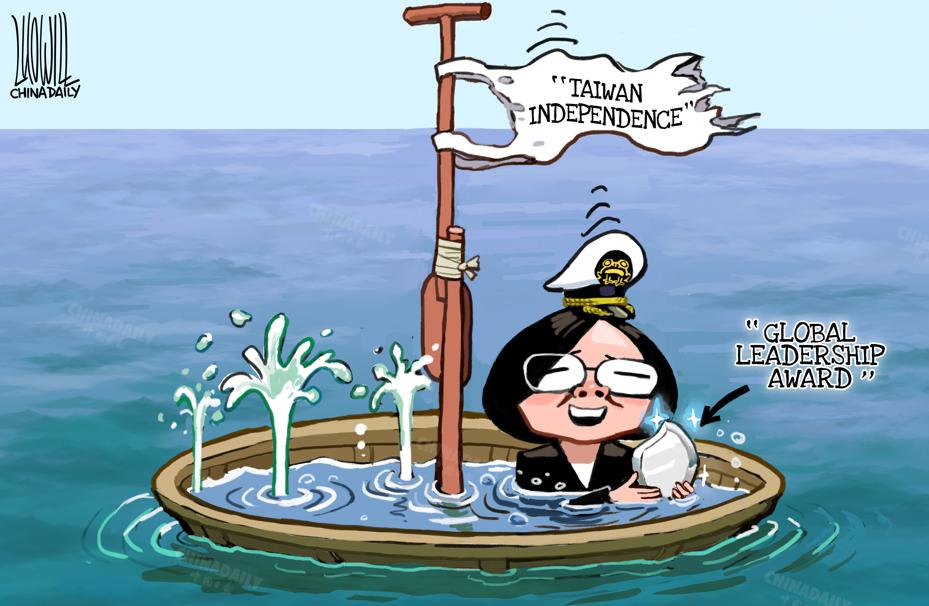
[Photo/China Daily]
By Shen Dingli
On Friday the Chinese mainland announced sanction measures against diehard separatist Bi-khim Hsiao, and two organizations advocating "Taiwan independence" in the name of "freedom" and "democracy".
This is just the beginning of the mainland's countermeasures, and the Taiwan authorities must pay a price for Taiwan leader Tsai Ing-wen's "transit" through the United States. She just concluded her visit to two Central American countries.
The US and Taiwan have been playing this game for some time now, with Washington relaxing restrictions on transit through US cities for some officials from Taiwan.
After Washington severed official ties with Taiwan in 1979 and established diplomatic relations with Beijing, it stopped allowing Taiwan officials from leaving his/her aircraft while in transit, and sent only division-level officials to the aircraft to greet them.
However, the Joe Biden administration has allowed Tsai to not only transit through the US more than once but also spend a few days on US soil during her transit and take part in high-profile public programs. This time, US House of Representatives Speaker Kevin McCarthy even led an 18-member Congress team to meet with Tsai in California.
The US' long-held religion is to maintain its global leadership position. But by joining Tsai to play this dirty game, the US has discredited its leadership and endangered its security and welfare.
It was the US that welcomed China in the Allied nations during World War II, partnered China to defeat the then militarized and expansionist Japan, and ensured Japan handed over the Taiwan island to China in 1945.
It was the US that shifted its official recognition from Taiwan to Beijing in 1979, in order to shape an anti-hegemony international community. At that time, the US agreed that "the United States of America recognizes the Government of the People's Republic of China as the sole legal Government of China." It also agreed to withdraw all its troops stationed in Taiwan and end the mutual defense agreement with the island.
And it was former US president Bill Clinton who, while visiting Shanghai in 1998, committed that "we don't support independence for Taiwan or two Chinas or one Taiwan, one China", adding that "we don't believe that Taiwan should be a member in any organization for which statehood is a requirement".
However, McCarthy's addressing Tsai as "president" is a serious violation of the US' commitment, even according to its own so-called one-China policy. The presence of about 30 US military personnel in Taiwan and reportedly the recent decision to quadruple their number in coming months, along with the sale of increasing amounts of weapons to the island, are gross violations of the US' commitment in the three Sino-US joint communiques.
The US has gone even further. In 2018, the Congress passed and the then president signed the Taiwan Travel Act, allowing visits of officials at all levels of the US and Taiwan to each other. According to the law, Tsai and her successors could pay an official visit — instead of just transiting through — to the US should Washington issue such an invitation.
Over the past decades, the US has seriously weakened the foundation of Sino-US relations. But it cannot enjoy the benefits of maintaining official relations with Beijing if it plans to virtually establish official ties with Taiwan.
When such a time of redefining relationship comes, will the US' global leadership be strengthened in any manner? Should that moment come, it would be the outcome of declining US credential and power, rather than otherwise.
The author is a professor and former executive dean of the Institute of International Studies, Fudan University.

 中文
中文



